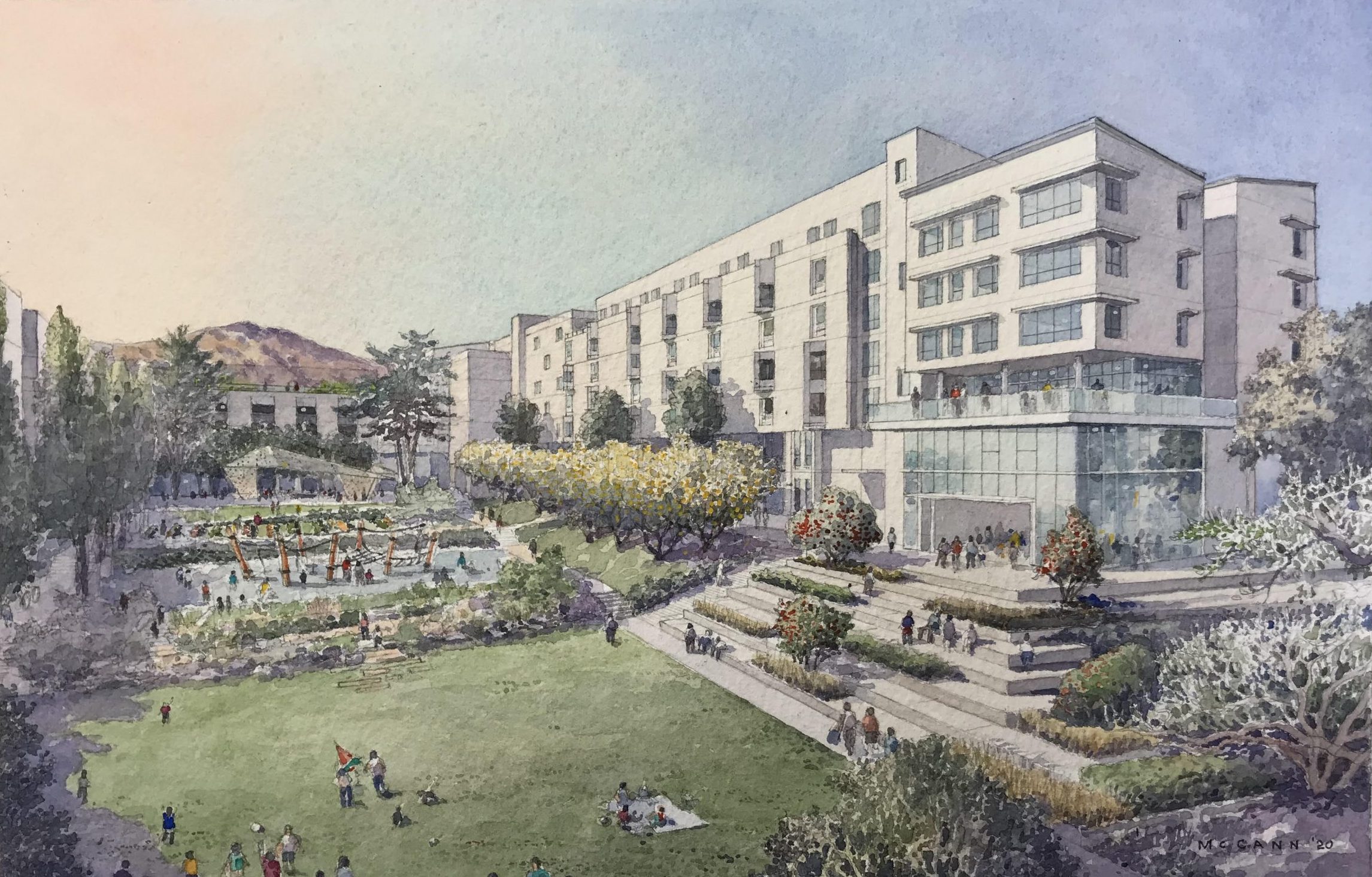Posted on: April 30, 2020
Source: San Francisco Chronicle
Posted by | Wednesday, April 29, 2020

San Francisco Mayor London Breed has finalized an agreement with the developers of the Balboa Reservoir, a key milestone in winning approvals of a controversial plan that would add 1,100 homes to the 17-acre parking lot next to City College.
The development agreement includes a commitment that the developers — Bridge Housing, AvalonBay and Mission Housing — make 550 of the units affordable. It will also include 4 acres of open space, a large child care center, a community center, and $10 million in fees to the city for transit and infrastructure improvements.
Legislation detailing the development agreement and a special use district needed to rezone the property were introduced at the Board of Supervisors Tuesday by board President Norman Yee, who had not previously taken a public position on the development.
Jen Low, a legislative aide to Yee, said that the details of the project would continue to evolve before final approvals, which are likely to happen this summer. Yee considered delaying the introduction of the legislation because of the shelter-in-place order, but ultimately decided to move the process along, Low said.
“He really wanted to shine a light on it so that members of the public could start weighing in,” said Low. “He is excited about he child care and the affordable housing. Those are elements he fought hard for. I’m sure a lot of people will give him feedback and we will have more changes.”
If approved, work on the $30 million of required infrastructure improvements — parks, roads, utilities, sidewalks, landscaping — will likely start in 2022. The first four buildings — two affordable and two market rate — will open in early 2024.
Phase one would include 154 units of educator housing and 123 apartments that would be affordable to a family of four making between $37,000 and $98,000 a year. City College faculty and staff would have first preference for the educator housing.
Brad Wiblin, executive vice president with Bridge Housing, which is developing the project along with AvalonBay and Mission Housing, said the city has “really stepped up to keep this process moving in the middle of the coronavirus shelter in place.”
“There is no doubt in our mind that we are committed to a project that is 50% affordable,” Wiblin said. “This is a 50/50 deal. There is no question, and the city is holding our feet to the fire to make sure that is the case.”
The Balboa Reservoir property is an approximately 17-acre parcel that the city and county of San Francisco owns under the jurisdiction of the San Francisco Public Utilities Commission.
“Our housing shortage did not go away during this pandemic, and now more than ever we need to continue to do the work to build more homes throughout our entire city,” said Mayor Breed.
Supervisor Yee established the Balboa Reservoir Community Advisory Committee in 2015, which included representatives from the Westwood Park and Sunnyside neighborhoods and an Ocean Avenue business owner. Yee said he hoped the committee “will serve as a model for what community-led planning can look like.”
But strong opposition persists. Breed is the fourth San Francisco mayor to attempt to build on the parking lot. Previous projects have been met with fierce resistance from residents and college students and faculty.
Tomasita Medál, a former City College music student, said, “This disaster should not be allowed to go forward.
“It is simply too large and inappropriate for the land parcel,” he said.
Christine Hanson, a City College student whose husband is a professor there, said the parking lot is a “public resource” that should not have any market-rate housing.
“It’s crazy. The city is buying land for affordable housing in places like the Haight and we have 17 acres of public land right here being sold off to private developers,” she said.
But the fact that two-thirds of the affordable housing at the Balboa Reservoir will be paid for by the market rate developers — the city will subsidize the other third — frees up hundreds of millions of dollars for other projects, according to Jon Winston, chairman of the Community Advisory Committee.
Without money from private developers the project would soak up much of the bond money the city has for affordable housing. “We would be lucky to get 200 or 300 affordable units,” he said.
Posted in: News